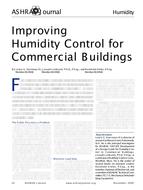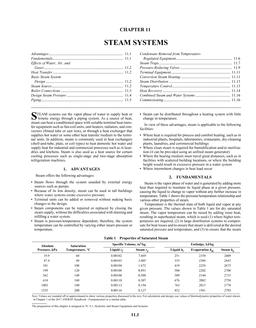A great deal of enhancement of boiling and condensation heat transfer has been achieved on the exterior surfaces of the tubes developed recently in the authors’ laboratory. Artificial nucleation sites densely populated on the evaporator tube help start boiling. of liquid with imposition of a very small temperature difference. Condensation is promoted on the condenser tube owing to the fine protrusions shown in Fig.l(a). These protrusions are made by tWq gouging processes crossing each other at about 45 deg. The surface structure of the evaporator tube is simply manufactured by bending the tips of protrusions. Tunnels and pores thus produced as shown in Fig.l (b) provide the sites for stable vapor nuclei. Superior performance of the evaporator and condenser tubes is emphasized in heat exchangers working with a relatively small temperature difference, because the degree of heat transfer enhancement over the performance of conventional low-finned tubes is extremely high in the’ range of small~. The authors, therefore, have attemped to bring the evaporator and condenser tubes to commercial market, first by incorporating them in the shell-and-tube heat exchangers of refrigerating machines. These refrigerating machines, used for the air conditioning of buildings, have evaporators and condensers working with 3 – 10 deg C. It seems apparent in view of the experimental data disclosed in previous reports, that the heat exchangers could be reduced in their volumes by about 30%.
Citation: ASHRAE Transactions, Volume 83, Part 2, Halifax, NS
Product Details
- Published:
- 1977
- Number of Pages:
- 13
- File Size:
- 1 file , 940 KB
- Product Code(s):
- D-HA-2452


